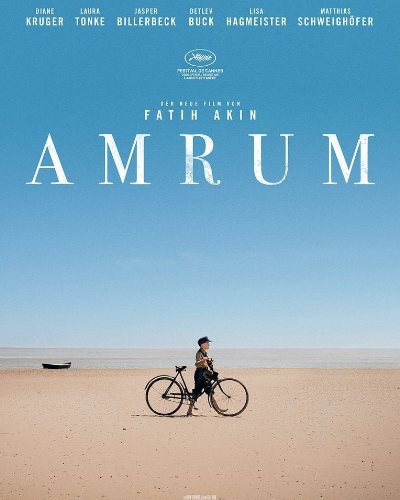
© Facebook Odeon Kino Köln
На екрани Німеччини вийшла нова робота Фатіха Акіна — історична драма «Amrum», яка вже встигла отримати схвальні відгуки критиків після прем’єри на Каннському кінофестивалі. Стрічка, створена у співпраці з Гарк Бомом, переносить глядача на північ Німеччини 1945 року — у світ, де війна добігає кінця, але її ідеологічна тінь ще не зникла. У центрі сюжету — 12-річний хлопчик Наннінг, який намагається зрозуміти дорослий світ у родині, де мати залишається відданою нацистським переконанням навіть після краху режиму. Через його погляд Акін показує, як дитяча свідомість стикається з провиною покоління батьків і зламом історії. Критики відзначають «Amrum» як спокійне, але глибоко емоційне кіно, де пейзажі острова, море й вітер стають метафорами очищення і пам’яті та називають кінострічку «дзеркалом для німецького суспільства, яке все ще намагається осмислити свою історію». Фатіх Акін, відомий своїми роботами «На межі» та «Головою об стіну», цього разу звертається до теми спадщини, дитячої невинності й моральної відповідальності. «Amrum» — це фільм про те, як навіть після падіння імперії найважче зруйнувати те, що живе всередині нас. У фільмі зіграли відома міжнародній аудиторії акторка Діана Крбгер та популярний актор німецького кінематографа - Маттіас Швайґгьофер.
Fatih Akin Returns to His Roots: “Amrum” — a Childhood Story Amid the Ruins of the Reich — Premieres in German Cinemas
In German director Fatih Akin released his latest feature, “Amrum,” a quietly devastating World War II drama that has already drawn critical acclaim following its premiere in the Cannes Premiere section of this year’s Cannes Film Festival. Best known for his deeply human stories (Head-On, In the Fade), Akin this time turns to the themes of memory, guilt, and lost innocence — exploring how a nation’s collapse reverberates through the life of a child. Co-written with screenwriter Hark Bohm, the film is set on the windswept North Sea island of Amrum in 1945, where the war is ending but its ideology still lingers like a toxic fog. The story follows twelve-year-old Nanning, a boy struggling to make sense of a world where his mother — still a devout believer in Nazi ideals — descends into fanaticism and despair. Through the child’s eyes, Akin captures the awakening of moral awareness in a time when truth itself has been corrupted. Critics have praised Amrum for its restraint and emotional precision. The Hollywood Reporter described it as “a quiet tragedy about the fragility of humanity,” while Screen Daily lauded Akin’s “visual poetry,” where the sea, wind, and dunes become metaphors for both redemption and forgetting. Many reviewers have called it one of the strongest German films of the year — an intimate, finely tuned parable about how evil survives defeat by changing its shape. Speaking to Reuters, Akin said he wanted to make “a film about childhood in the shadow of lies,” one that doesn’t pass judgment but asks how people lose the ability to tell love from loyalty to an ideology. Ultimately, Amrum is more than a historical drama. It is an intimate meditation on moral responsibility and memory, a film that reminds us that even after empires collapse, their echoes persist — haunting, painful, but necessary for understanding who we are. The film stars internationally acclaimed actress Diane Kruger and popular German actor Matthias Schweighöfer
1763